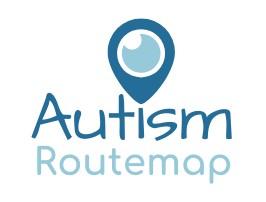Understanding Autistic Overwhelm

The “O” word. Overwhelm. I hear so many of my clients use it to describe how they feel.
Overwhelm is often the reason that intellectually able people seek a diagnosis in the first place. It’s not necessarily big issues with communication or people skills per se but rather, a sense that it’s all too much.
“All too much” comes in many shapes and sizes. It may be the university student who drops out of their course because they are too far behind. Or the partner who is collapsing under the combined demands of raising children and running a home. It could be the person who feels unable to cope with the endless emails and project challenges at work.
The reality is that demands grow as we move from childhood to adulthood. “Adulting”, as some call it, comes with a lot of pressure. University students, for example, have to figure out a myriad of new things. From feeding themselves to finding their way around campus, making new friends and everything in between, student life is certainly not dull.
Adults often experience an increase in pressure as they progress in their careers. The entry level job typically carries far fewer expectations and responsibilities than that of a manger or team leader. And, as you progress up the seniority ladder at work, you may also be dealing with a growing family that needs nurturing at home.
It’s little wonder that intellectually able people often only first consider the possibility of an autism diagnosis when they reach adulthood. Perhaps in their 20’s, 30’s, 40’s, 50’s or even 60’s. Where good cognition (rather than social intuition) may have sufficed in the younger years, the system is now over-taxed. People get to the point of surviving rather than thriving and it’s all too much.
What this tells us is that autistic people are generally living with high levels of pressure and can become exhausted if the environmental demands increase too much. They can get to that place of feeling depleted faster than many neurotypicals.
The high levels of anxiety and other mood disorders, like depression, in the autistic population confirm this.
I’ve come across many autistic people who feel angry when others tell them, “We’re all a little bit autistic”. I think the comment is probably meant kindly – a way of saying, “I understand you”. But the reason it’s met with anger is because the person feels the opposite – they feel misunderstood.
Autistic people are coping with a combination of issues that can make daily life very stressful. These include challenges in communication, people skills, executive function, and sensory processing. They may also be dealing with other factors related to attention, mood, and co-ordination to name a few. Each of these areas can be hard to manage by themselves but together they can easily lead to overwhelm.
A starting point for managing overwhelm is understanding why it’s there in the first place. In my experience, autistic people often expect themselves to function like everyone else and don’t realise how hard they are working to manage all the demands of everyday life. What is needed here is a salute of respect and acceptance for this reality.
Beyond this, it is necessary to design a life that works for you. Consider all your roles, responsibilities and environments to create a life-balance that suits your make-up. What needs changing? This will probably involve some honest discussions with the people in your life.
For our cars to function, we must put air in the tyres and petrol in the tank. We change the oil and give it an annual service. And just as cars have different requirements so do people. Each of us has a different disposition that needs nurturing in a different way. Is it time to check in on yourself and see what is needed?
I love this quote from Katie Reed, “Self-care is giving the world the best of you, instead of what’s left of you”.
To a life of balance!
Linda Philips
MSc. Human Communication
Autism Routemap supports autistic and neurodivergent people with coaching and training to improve communication, people skills and emotional well-being. Interested in knowing how we can help?
Contact [email protected] or book a free Turning Point call here.

